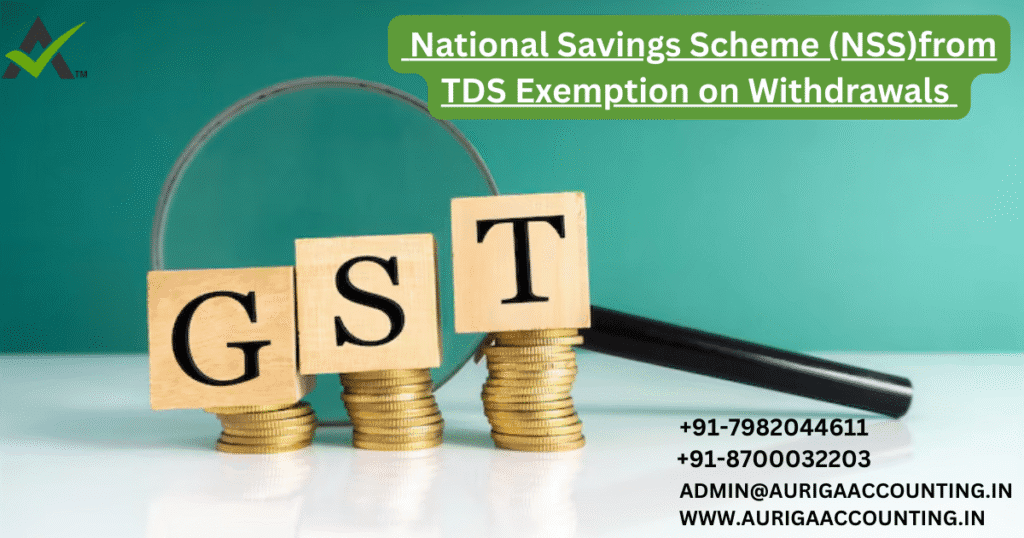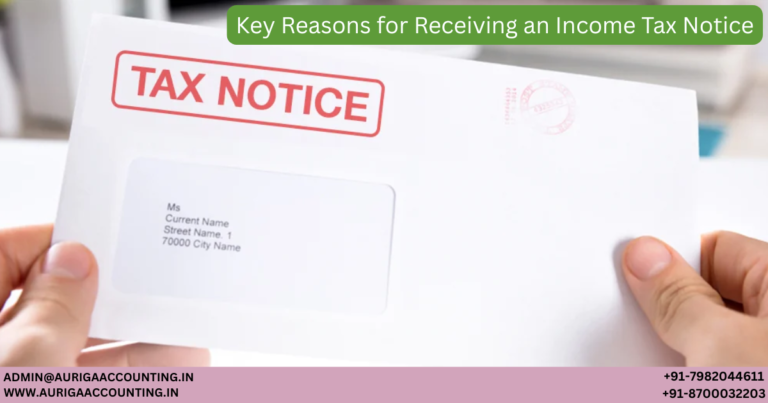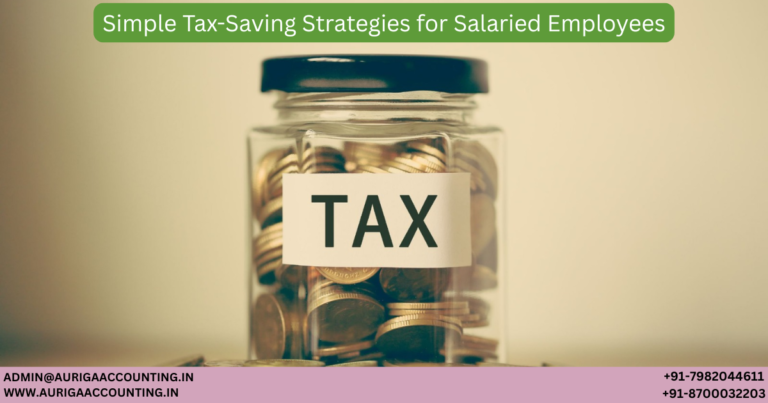Muskan
Muskan is a skilled content writer with expertise in business registration, tax regulations, trademark laws, and company compliance. His well-researched and insightful articles provide clear, actionable advice, helping businesses efficiently navigate the complexities of legal and regulatory requirements

National Savings Scheme (NSS)from TDS Exemption on Withdrawals
Introduction
ToggleOverview of the Latest Notification on TDS Exemption for NSS Withdrawals
The recent notification issued by the government outlines that no tax will be deducted at source under Section 194EE on payments made to individual taxpayers withdrawing amounts specified in Section 80CCA(2)(a) of the Income Tax Act. This exemption means that individuals withdrawing accumulated balances from National Savings Scheme (NSS) accounts, such as NSS-87, will no longer face TDS deductions from the date the notification was published.
Key Provisions Involved:
Section 194EE:
This section previously mandated a 10% TDS on premature withdrawals from NSS accounts if the amount exceeded ₹2,500, unless the withdrawal was exempted under certain conditions.Section 80CCA(2)(a):
This provision relates to withdrawals from NSS accounts where a deduction was claimed under Section 80CCA(1). The amount withdrawn, including any accrued interest, becomes taxable income in the year of withdrawal.
What is the National Savings Scheme (NSS)?
The National Savings Scheme (NSS) was introduced by the government to encourage small investors by offering stable returns and tax benefits. Although accounts like NSS-87 and NSS-92 have been discontinued, many individuals continue to hold balances in these legacy accounts. These schemes previously allowed tax deductions under Section 80C and were subject to taxation and TDS under Section 194EE when funds were withdrawn. However, recent updates have provided an exemption from TDS on such withdrawals for individual taxpayers.
Key Changes from the Notification:
| Before | After |
|---|---|
| TDS at 10% applied on withdrawals exceeding ₹2,500 from NSS accounts | No TDS deduction on withdrawals specified in Section 80CCA(2)(a) |
| TDS was deducted unless specifically exempted | Now, individual taxpayers withdrawing under these provisions are exempt from TDS, regardless of the amount |
Key Takeaways:
The TDS exemption applies only to individual taxpayers.
It applies specifically to withdrawals as outlined in Section 80CCA(2)(a).
The exemption is effective from the date the notification was published in the Official Gazette.
Who Benefits from This TDS Exemption?
Here’s a quick comparison of the ITR-1 (Sahaj) and ITR-2 forms for salaried employees based on key factors:
This exemption offers significant benefits to the following groups:
Small Savers and Pensioners: Individuals who rely on National Savings Scheme (NSS) for their long-term financial security can now withdraw their matured balances without worrying about TDS deductions.
Taxpayers Seeking Simpler Withdrawals: Those looking to withdraw accumulated balances from NSS accounts can do so without the additional burden of TDS, making the process smoother and more straightforward.
Individuals Who Need to File Returns Solely for TDS Refunds: Many taxpayers previously had to file returns just to claim refunds on TDS deducted. With this exemption, they can avoid this extra step.
Need Professional CA Consultation on TDS?
If you’re unsure how this TDS exemption impacts your tax situation or need further clarification on the recent change, it’s a good idea to consult a qualified Chartered Accountant. IndiaFilings offers expert CA support to help you navigate your TDS obligations, file your returns accurately, and stay compliant. Whether you need help understanding the applicability of TDS on NSS withdrawals or other related tax provisions, our experts are here to guide you through the process
About the Author
January 31, 2026
new
January 10, 2026
January 8, 2026
January 8, 2026
January 8, 2026
January 7, 2026
January 7, 2026
January 7, 2026
January 7, 2026
January 7, 2026
January 7, 2026
January 7, 2026
January 6, 2026
December 31, 2025
December 31, 2025
December 29, 2025
December 29, 2025
December 27, 2025
December 26, 2025
December 26, 2025
December 12, 2025
December 12, 2025
November 29, 2025
November 29, 2025
November 29, 2025
November 28, 2025
November 28, 2025
November 28, 2025
November 27, 2025
November 27, 2025
November 27, 2025
November 26, 2025
November 26, 2025
November 26, 2025
November 25, 2025
November 25, 2025
November 25, 2025
November 24, 2025
November 24, 2025
November 24, 2025
November 24, 2025
November 21, 2025
November 21, 2025
November 19, 2025
November 19, 2025
November 19, 2025
November 15, 2025
November 15, 2025
November 13, 2025
November 13, 2025
November 13, 2025
June 16, 2025
June 13, 2025
June 11, 2025
June 11, 2025
June 10, 2025
June 9, 2025
June 5, 2025
June 5, 2025
June 5, 2025
June 4, 2025
June 3, 2025
May 31, 2025
May 31, 2025
May 28, 2025
May 28, 2025
May 27, 2025
May 27, 2025
May 27, 2025
May 26, 2025
May 26, 2025
May 26, 2025
May 26, 2025
May 26, 2025
May 24, 2025
May 24, 2025
May 24, 2025
May 24, 2025
May 23, 2025
May 23, 2025
May 23, 2025
May 23, 2025
May 23, 2025
May 23, 2025
May 23, 2025
May 22, 2025
May 22, 2025
May 22, 2025
May 21, 2025
May 21, 2025
May 21, 2025
May 21, 2025
May 21, 2025
May 20, 2025
May 17, 2025
May 17, 2025
May 17, 2025
May 17, 2025
May 16, 2025
May 16, 2025
May 16, 2025
May 15, 2025
May 15, 2025
May 15, 2025
May 14, 2025
May 13, 2025
May 13, 2025
May 13, 2025
May 12, 2025
May 12, 2025
May 12, 2025
May 12, 2025
May 10, 2025
May 10, 2025
May 10, 2025
May 10, 2025
May 9, 2025
May 9, 2025
May 9, 2025
May 9, 2025
May 9, 2025
May 8, 2025
May 8, 2025
May 8, 2025
May 8, 2025
May 8, 2025
May 8, 2025
May 8, 2025
May 7, 2025
May 7, 2025
May 7, 2025
May 7, 2025
May 7, 2025
May 7, 2025
May 6, 2025
May 5, 2025
May 5, 2025
May 5, 2025
May 3, 2025
May 3, 2025
May 3, 2025
May 3, 2025
May 3, 2025
April 30, 2025
April 30, 2025
April 29, 2025
April 28, 2025
April 28, 2025
April 28, 2025
April 28, 2025
April 26, 2025
April 26, 2025
April 26, 2025
April 26, 2025
April 26, 2025
April 25, 2025
April 25, 2025
April 24, 2025
April 23, 2025
October 30, 2023
October 30, 2023
October 30, 2023
October 30, 2023
October 28, 2023
October 28, 2023
October 28, 2023
October 28, 2023
October 28, 2023
October 28, 2023
October 28, 2023
October 28, 2023
October 28, 2023
October 27, 2023
October 27, 2023
October 27, 2023
October 27, 2023
October 27, 2023
October 27, 2023
October 27, 2023
October 27, 2023
October 26, 2023
October 26, 2023
October 26, 2023
October 26, 2023
October 26, 2023
RELATED ARTICLES
Key Reasons...
Simple Tax-Saving...
Tax Saving...
Section 80GGA:...
Guide to Income...
How to Verify...
Handling Income...
No posts found












